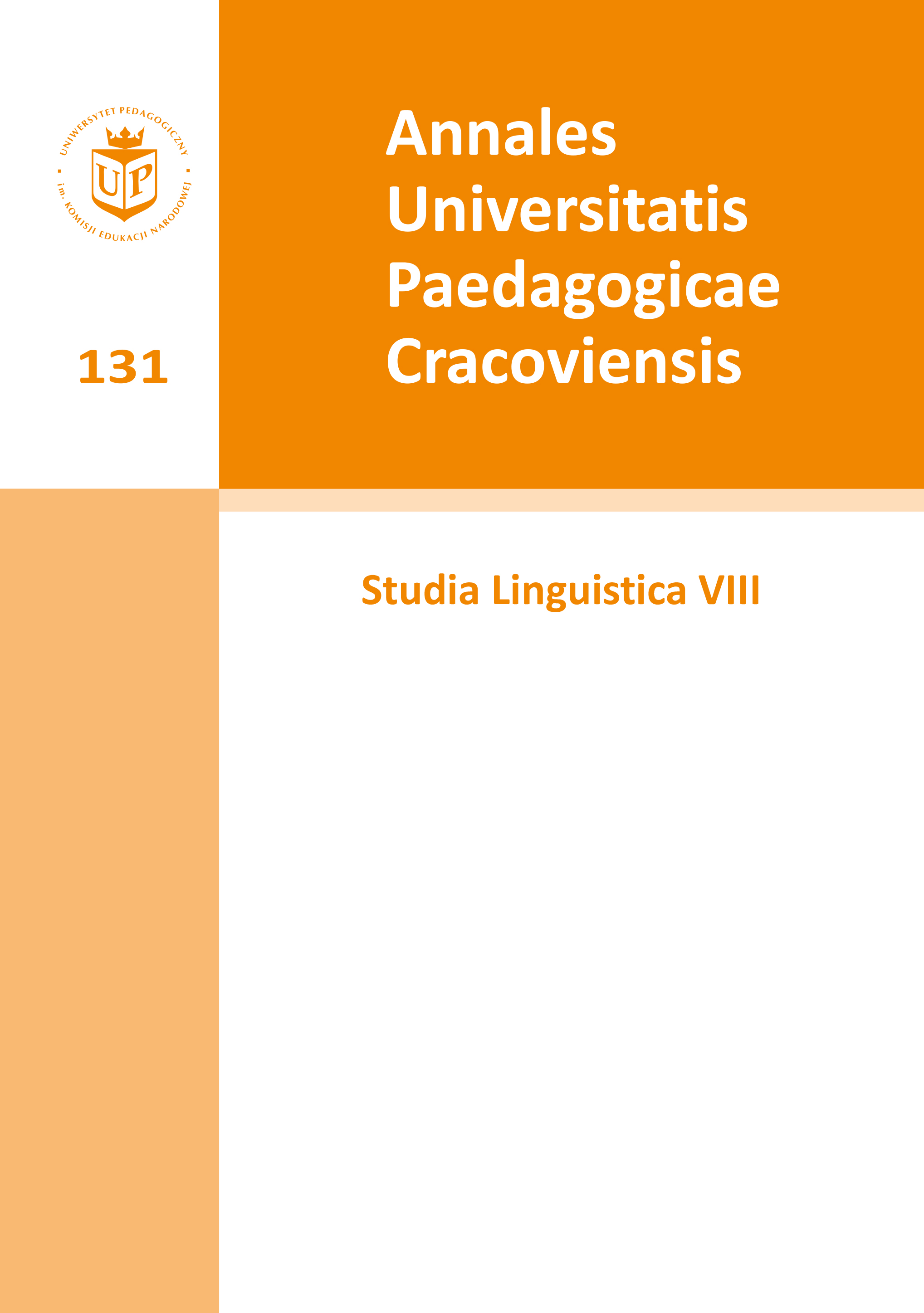O jedzeniu i pracy – na podstawie polskich przysłów
Main Article Content
Abstract
The selected proverbs point to the fact that eating is something obvious and natural, a repeated activity that aims at sating one’s appetite. Eating as a sign of life in proverbs has been contrasted with death. It is also a reward, payment for one’s work. However, some exceptions to this rule could be distinguished, including situations when: 1. one man works while another eats, i.e. “consumes” the fruit of the work of the former; 2. one eats but does not work, i.e. is a lazy person; 3. one works but does not eat, i.e. does not receive payment for his or her work, or the payment is unsatisfactory. Among the elements that build the linguistic picture of eating are the relations between eating and working: 1. work dominates eating, i.e. eating does not counterbalance the effort put in working, payment for work is insufficient (the point of view here is of a farmhand or a peasant); 2. eating dominates work, i.e. one eats more than one has worked for (one looses all the possessions, or falls into poverty); 3. balance is maintained between working and eating, i.e. one “eats up” everything that he or she has worked for. The linguistic picture of eating and working has been formed not only on the basis of life experience of many generations that reflects social hierarchy: gentry, peasantry (many proverbs present the viewpoint of a villager, a folklore bearer), but also under the influence of the Bible. This is because work is identified with a virtue, its aim is the maintenance and development of life, while not working (laziness) is a sin.
Downloads
Article Details
Author, submitting a text to the editorial board of the journal “Annales Universitatis Paedagogicae Cracoviensis. Studia Linguistica", certifies that the content of the article has not been published so far and that the work does not violate in any way the copyright or related rights of other person, as well as other rights of third parties, and that no one's rights to the work (or any part thereof) have been missed. After signing the contract, the property rights to the published materials are transferred to the Scientific Publisher of the University of the National Education Commission, Krakow.
“Annales Universitatis Paedagogicae Cracoviensis. Studia Linguistica” is an open access journal, and all its content is made available free of charge to users and institutions under the Creative Commons CC-BY-NC-ND 4.0 license (attribution, non-commercial use, no derivative works). Under this license, the authors agree that their work may be lawfully reused for any purpose, except for commercial purposes, without the prior consent of the author or publisher. Everyone can read, download, copy, print, distribute and process these works, provided that the author's marking and the original publication place are correct. Published texts may not be used to create derivative works (e.g. to translate and publish in another language without the consent of the publisher). This is in line with the BOAI (Budapest Open Access Initiative) definition. "Studia Linguistica" does not charge for submitting or processing articles.
References
Brzozowska M., 2006, Zmiany semantyczne nazw związanych z pracą w nowych warunkach ustrojowych (na podstawie ankiet przeprowadzonych wśród studentów lubelskich uczelni w latach 1990 i 2000), [w:] Przemiany języka na tle przemian współczesnej kultury, red. K. Ożóg, E. Oronowicz-Kida, Rzeszów, s. 212–227.
Google Scholar
Długosz K., 2001, Językowy obraz chleba w Biblii i w przysłowiach, „Prace Filologiczne”, t. 46, s. 153–163.
Google Scholar
Kubiak I., Kubiak K., 1981, Chleb w tradycji ludowej, Warszawa.
Google Scholar
Mazurkiewicz M., 1990, Dwa spojrzenia na pracę. Perspektywa interpretacyjna a znaczenie słowa, [w:] Językowy obraz świata, red. J. Bartmiński, Lublin, s. 129–146.
Google Scholar
Mazurkiewicz-Brzozowska M., 1993, „Praca”. Wybrane warianty znaczenia słowa we współczesnej polszczyźnie i ich struktura kognitywna, [w:] Nazwy wartości. Studia leksykalno-semantyczne I, red. J. Bartmiński, M. Mazurkiewicz-Brzozowska, Lublin, s. 133–145.
Google Scholar
Головaнова А., 2003, Категория ценности и ее репрезентация в польской языковой картине мира, [w:] Język w kręgu wartości. Studia semantyczne, red. J. Bartmiński, Lublin, s. 163–169.
Google Scholar
